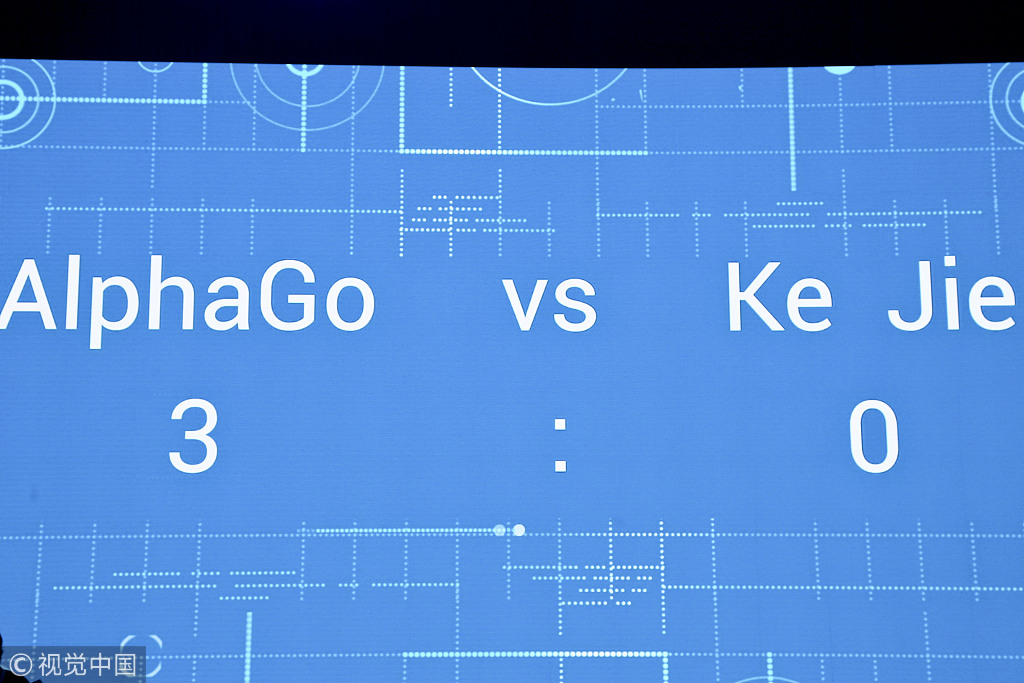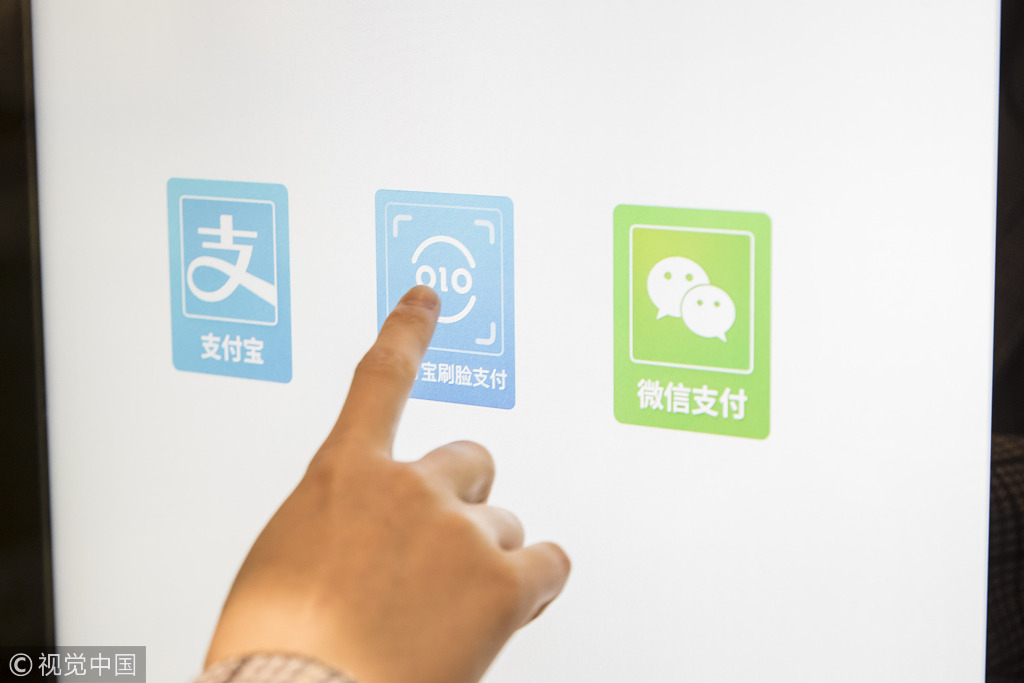
Opinion
08:19, 25-Mar-2019
Digital Silk Road: China's AI leap boosts global development
Ma Wenyan

Editor's note: Ma Wenyan is CEO of China Silkroad Investment and a young global leader at the World Economic Forum. He is also an adjunct professor at the NYU Law School on "Sovereign Finance and Investments" and the author of "China's Mobile Economy", "Digital Economy 2.0", and "The Digital Silk Road". The article reflects the author's views, and not necessarily those of CGTN.
In May 2017, China hosted the historical match of the Weiqi game ('Go') between Ke Jie, the world's No.1 ranked player and world champion, and the AI (artificial intelligence)-enabled computer Go program named AlphaGo, designed by the DeepMind Lab of the U.S. Internet giant Google.
The Wuzhen showdown was ripe with suspense and symbolism – human versus machine, intuition versus algorithm, tradition versus modernity, and with the AI machine's straight 3-0 win over the best human player, the unequivocal rise of the "AI economy."
Almost overnight, the Internet business community in China started discussing about "the second half" of the mobile economy era, which in 2013-2016 drove a boom in e-commerce and mobile entertainment.

The Weiqi game (the 'Go' game) is held between Ke Jie, the world's No.1 ranked player and world champion, and the AI (artificial intelligence)-enabled computer Go program named AlphaGo, in China's Wuzhen City, May 27,2017. /VCG Photo
The Weiqi game (the 'Go' game) is held between Ke Jie, the world's No.1 ranked player and world champion, and the AI (artificial intelligence)-enabled computer Go program named AlphaGo, in China's Wuzhen City, May 27,2017. /VCG Photo
In particular, the image of top human player crying at his loss to AI has triggered a great sense of determination and urgency among Chinese businesses and companies about AI: either adapt to the upgrade of the fast-evolving technology of AI, big data analysis, and computer chips – or be destroyed. Since 2017, the new keywords have been "data" and "intelligence."
Across just about every industry sector, Chinese companies are investing heavily in research and development of the latest digital technology. For example, the largest Internet companies BAT (Alibaba, Tencent and Baidu) are investing billions in building new research centers, hiring experienced AI experts from U.S. Silicon Valley to work on the latest algorithms, smart robotics, and self-driving cars.
What's truly extraordinary is the decisive commitment from the Chinese government, which has announced a sweeping vision for AI and digital economy excellence through a series of policies and initiatives. Perhaps it was a coincidence of timing, but soon after the Wuzhen Go match, China's central government released "A Next Generation Artificial Intelligence Development Plan" in July 2017. Soon after that, a series of detailed implementation guidelines followed.
This AI rush, of course, is but the latest phase of China's digital economy revolution, which involves embracing the "full suite" of technologies, including not only the mobile Internet but also the Internet of Things (IoT), Big Data, artificial intelligence (AI) and much more.
"We should actively adapt ourselves to digital evolution, foster new economic drives, advance structural reforms and promote integrated development of digital and real economy," said President Xi Jinping at the 2017 G20 summit.

An employee uses the Alipay "Smile to Pay" facial-recognition payment system, operated by Alibaba Group Holding Ltd's Ant Financial Services Group, while demonstrating a touchscreen kiosk to order a meal at a Yum China Holdings Inc. KFC restaurant in Shanghai, China, March 19, 2019. /VCG Photo
An employee uses the Alipay "Smile to Pay" facial-recognition payment system, operated by Alibaba Group Holding Ltd's Ant Financial Services Group, while demonstrating a touchscreen kiosk to order a meal at a Yum China Holdings Inc. KFC restaurant in Shanghai, China, March 19, 2019. /VCG Photo
In the AI field, the critical advantage China has is its data resources. With more than 800 million Internet users unified by the same language, same culture, and same mobile payment, the data in China's market is primed for surging growth.
This mobile infrastructure and all the applications built on top of it generate lots of "AI-ready" data feeding into the AI virtuous cycle – the more data for testing, the more AI products to implement, the more data generated again from usage.
As such, China is ascending quickly, catching up to the long-dominant U.S. lead. For example, at the Association for the Advancement of Artificial Intelligence that every year gathers the world's top experts, U.S. researchers in 2012 presented 41 percent of the papers at the meeting, and China side barely reached 10 percent; in 2017, however, U.S. share of papers fell to 34 percent and China's grew to 23 percent.
Of course, China still has much to catch up on. China's capabilities in business AI (relating to business processes and decision making) is likely to develop more slowly than the U.S., due to a lack of enterprise software adoption among Chinese businesses.
The dual-horse AI race between China and the U.S. may also give emerging markets a sense of urgency. The digital revolution may impose significant challenges for many of the smaller countries, especially those that are lack of technology resources and have large labor forces that might be replaced by AI.
But it may also be a leapfrogging opportunity for them if those countries embrace the new technology revolution just as keenly, and with China's Digital Silk Road initiative providing China's case study and other necessary support. As President Xi suggested at the G20 summits: Collectively, the digital economy revolution will build an innovative, invigorated, interconnected and inclusive world economy.
(If you want to contribute and have specific expertise, please contact us at opinions@cgtn.com.)

SITEMAP
Copyright © 2018 CGTN. Beijing ICP prepared NO.16065310-3
Copyright © 2018 CGTN. Beijing ICP prepared NO.16065310-3